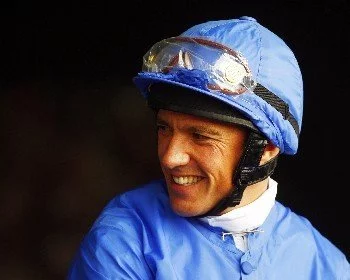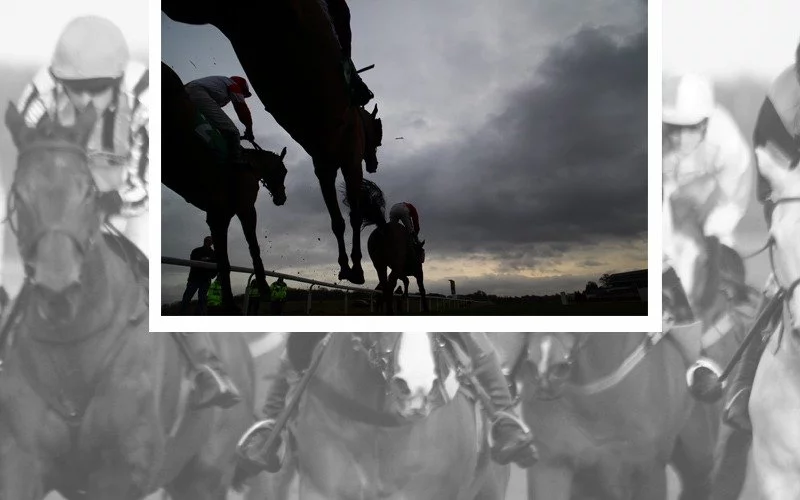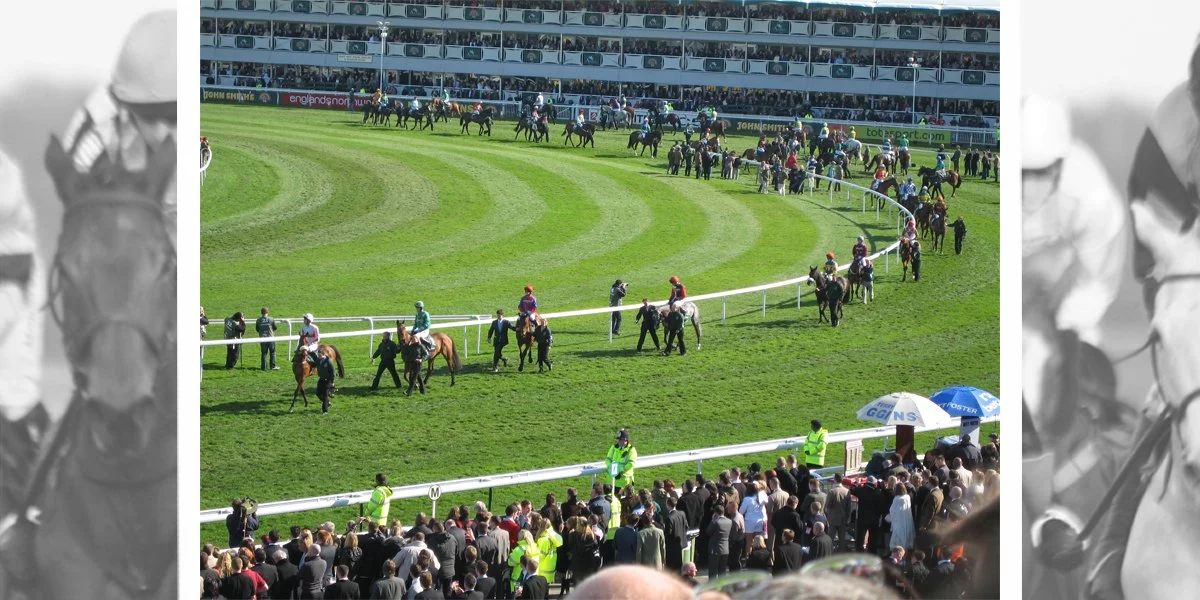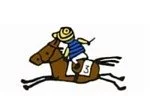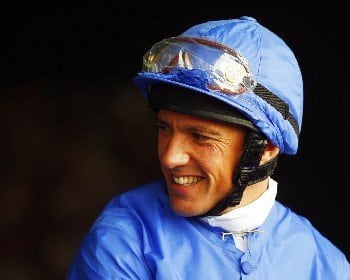 The QIPCO 2000 Guineas, which was founded in 1809 and has a glittering roll of honour, celebrates its 204th running this year.
The QIPCO 2000 Guineas, which was founded in 1809 and has a glittering roll of honour, celebrates its 204th running this year.
Along with the QIPCO 1000 Guineas, also over Newmarket’s Rowley Mile, the 2000 Guineas is one of the five English Classics, all restricted to three-year-olds – the others being the Derby and Oaks, both over a mile and a half at Epsom Downs in early June, and the extended 14-furlong St Leger, which takes place at Doncaster in September.
Sir Charles Bunbury, who played an important role in the development of British racing, including overseeing the extension of the Jockey Club’s authority, was inspired to introduce the two youngest Classics – the 2000 Guineas for colts and fillies and the 1000 Guineas for fillies only. The name derived quite literally from the initial prize fund for the race – 2,000 guineas was in effect a guaranteed sweepstake, irrespective of the number of subscribers.
The inaugural running was won by Wizard, who gained £1,522 for his connections, in the silks of Yorkshire sportsman Christopher Wilson. Bill Clift steered Wizard to that success and, five years later, completed a famous double for the same owner when partnering Charlotte to take the first running of the 1000 Guineas. Both were trained by Tom Perren. The QIPCO 2000 Guineas now has a prize fund of £350,000.
Clift began his career as a shepherd boy on the estate of Lord Rockingham, where he gained early riding experience in pony races that were organised to amuse guests at Wentworth Woodhouse. Rockingham was so impressed by Clift’s untutored talent that he sent the youngster to join his private stable, which moved to Newmarket shortly afterwards under the management of the Marquis’ trainer Christopher Scaife. Although Clift was not the most stylish rider, he more than compensated with a vigorous use of the whip, which would not be tolerated today.
In the early days of the 2000 Guineas, trainers Robert Robson, Dixon Boyce and James Edwards dominated the Classic, with 17 wins between them in the first 29 renewals. Between 1825 and 1848, Jem Robinson, who won the 2000 Guineas on a number of occasions for the last-named pair, was successful nine times and he remains the winning-most jockey.
Legendary Malton-based trainer John Scott, who was known as “The Wizard of the North”, keeps the accolade of being the most successful trainer of the Classic with no less than seven successes. He opened his 2000 Guineas account with back-to-back wins in 1842 and 1843, when his brother Bill Scott rode Meteor and Cotherstone to success for owner John Bowes.
The fourth Duke of Grafton and the fifth Earl of Jersey are the joint most successful owners in the Classic’s history with five wins each. The first-named won three consecutive renewals along with trainer Robert Robson and jockey Frank Buckle. They began their run with Pindarrie in 1820, followed by Reginald and Pastille. In 1826, Dervise gave the owner and trainer another success, this time with John Barham Day in the saddle. The following year, Frank Buckle was back in the plate when Turcoman landed the spoils.
Buckle, who held the record of 27 Classic winners until it was surpassed by Lester Piggott in 1984, was an apprentice at the Hon Richard Vernon’s private yard at Newmarket. When he rode his first winner in 1783, he weighed just 3st 13lb. At the end of his career, almost half a century later at the age of 65, he could still go to the scales at 7st 11lb.
The fifth Earl of Jersey won his first 2000 Guineas in 1831 with the James Edwards-trained Riddlesworth, who was ridden by Jem Robinson. Three years later, the owner and trainer started a four-year domination of the Classic with Glencoe. Robinson partnered four of Lord Jersey’s winners but was not on board the 1837 winner Achmet.
Since 1900, the Classic has been won by a short-head 12 times – Neil Gow (1910), Kennymore (1914), Adam’s Apple (1927), Pay Up (1936), Kingsway (1943), Nimbus (1949), Palestine (1950), Only For Life (1963), Kashmir II (1966), Royal Palace (1967), Mister Baileys (1994) and, most recently, Mark Of Esteem (1996). Henrythenavigator’s defeat of New Approach in 2008 was the first time a British Classic had been won by the narrowest margin of a nose, which was introduced earlier the same year.
In 1930, 28 runners went to post for the 2000 Guineas, which was won by Sir Hugo Hirst’s Diolite. That remains the largest field of runners to date. Over 100 years previous to that, in both 1829 and 1830, just two runners started. Charles Marson trained the winners of those two renewals (Patron and Augustus) for the second Marquess of Exeter. The maximum field allowed is currently 30.
The 2000 Guineas quickly became known as the best trial for the Derby. Smolensko, who was appropriately owned by Sir Charles Bunbury, was the first horse to complete the double when landing both Classics in 1813. Since then, 35 other horses have managed the tremendous double, the most recent being Sea The Stars in 2009.
An old adage states that the winning formula for the Derby is ‘fourth in the Guineas, first in the Derby’. The last horse to fit such a pattern was the Paul Cole-trained Generous in 1991, although the 2008 2000 Guineas runner-up, New Approach, relished the step up in distance at Epsom and recorded a half-length verdict over Tartan Bearer, while in 2006 Sir Percy also came second in the Guineas before taking the Derby.
Harry Wragg followed up his younger brother Sam’s success on Highway in 1943 with his own victory in the saddle 12 months later on Garden Path for Walter Earl. The jockey matched that feat in his role as a trainer 10 years later when he saddled Darius to win the 2000 Guineas under Manny Mercer. Mercer, who married the trainer’s daughter Susan, was tragically killed in a fall on his way to the start at Ascot in 1959. He was only 29.
Highway’s trainer Joe Lawson, who had won the Classic previously with Orwell (1932) and Pay Up (1936), struck gold again in 1945 when Sir Gordon Richards’ brother Clifford partnered Court Martial to a neck success. Runner-up on that occasion was evens favourite Dante, who was found to have an inflamed eye days before the race and some argued that the colt couldn’t see his rival as they raced to the post.
The 2000 Guineas, together with the Derby and St Leger, form the Triple Crown and 15 horses have managed to win these three Classics, the first being the John Scott-trained West Australian in 1853 and the most recent being the Vincent O’Brien-trained Nijinsky in 1970. One of the most outstanding Triple Crown winners was the unbeaten Ormonde in 1886.
Helen Johnson Houghton became the first female trainer to win the 2000 Guineas when Gilles De Retz defied odds of 50/1 to land the 1956 renewal under Frank Barlow. Johnson Houghton kept the stable at Blewbury going after the death of her husband, trainer Major Gordon Johnson Houghton, in 1952. However, at the time, the Jockey Club did not allow women to hold a trainer’s licence, so Gilles De Retz was returned in-training by assistant Charles Jerdein but the success has since been attributed to Johnson Houghton.
Lester Piggott, who first won the 2000 Guineas in 1957 on the Sir Noel Murless-trained Crepello, partnered Nijinsky to win the Triple Crown in 1970. The legendary jockey won the 2000 Guineas five times, most recently in 1992 on Rodrigo De Triano, trained by Peter Chapple-Hyam for owner Robert Sangster. Piggott partnered 15/8 favourite Ribofilio, who controversially failed to justify favouritism in 1969. The colt was struggling after 100 yards, came under serious pressure after a furlong and was tailed off after three furlongs. He was eased to a canter and brought to a standstill after four furlongs, while 15/2 chance Right Tack was the facile two and a half length winner under Geoff Lewis for Epsom-based trainer John Sutcliffe. Initially, many believed that Ribofilio had been doped. However, tests proved negative and no explanation – either physical or temperamental – was ever given.
One of the best 2000 Guineas winners of the 20th century was Tudor Minstrel, who scored by a record eight lengths in 1947. In 1961, Norman Stirk steered 66/1 outsider Rockavon to defy the odds and land the 2000 Guineas for trainer George Boyd and owner Tommy Yuill. He remains the longest priced winner of the 2000 Guineas.
The 2000 Guineas of 1971 saw a great finish between two outstanding racehorses – Brigadier Gerard and Mill Reef. It was “The Brigadier” who won by three lengths. The first two never met again, with Brigadier Gerard, who was beaten just once in 18 starts from five to 12 furlongs, becoming one of the greatest milers of all time, while Mill Reef was outstanding at middle distances. The following year, High Top battled against gale force winds and driving rain to give trainer Bernard Van Cutsem a memorable victory in the Classic, after leading stable fancy Crowned Prince was ruled out of the race.
Steered by Willie Carson, Sir Jules Thorn’s colt led the 12 runners soon after leaving the stalls and stayed on to score by half a length.
Carson recorded his second of four wins in the Classic aboard Known Fact in 1980 when first past the post Nureyev was demoted to last place following a stewards’ inquiry. The latter came through the field, causing a couple of instances of interference, with a fantastic burst of speed. However, he became the first and only horse to lose the race, giving the Jeremy Tree-trained colt success in the colours of Khalid Abdulla.
In 1975, Henry Cecil enjoyed his first Classic success when Bolkonski came up the Rowley Mile to win the 2000 Guineas with, almost literally, a police escort. The stable lads’ strike of that year cast a shadow over the meeting, which was almost in jeopardy. After the race, a large group of stable lads marched in protest up the track, surrounded by police officers, with the winning horse’s groom being carried on their shoulders.
Two years later, an Irish victory was expected. However, the result was not exactly the one predicted. Vincent O’Brien sent out 6/5 favourite The Minstrel, who had won the 2000 Guineas Trial at Ascot, but it was Kevin Prendergast’s 20/1 shot Nebbiolo who landed the spoils under Gabriel Curran, with his compatriot chasing home in third. The Minstrel went on to win the Derby.
Another excellent year was 1984, when the brilliant El Gran Senor proved two and a half lengths too strong for Chief Singer. After his Newmarket success, El Gran Senor was controversially beaten a short-head by Secreto in the Derby and finished his career with victory in the Irish Derby, while Chief Singer became a top sprinter. Two years later, there was another great winner in Dancing Brave. The Guy Harwood-trained colt was unlucky not to take the Derby on his next start but, by the end of the season, had won the Eclipse Stakes, King George VI & Queen Elizabeth Stakes and the Prix de l’Arc de Triomphe.
Racing pundit and presenter John McCririck elected Zafonic’s 1993 2000 Guineas success as his most memorable race in Racing Post 100 Greatest Races. The aforementioned duel between Brigadier Gerard and Mill Reef was 13th in the overall list, while El Gran Senor’s win was 30th. The other two renewals of the Classic to make the cut in that exclusive roll were Tudor Minstrel’s runaway victory in 1947 and the battle between eventual winner Ormonde and Minting in 1886.
In 1994, the Mark Johnston-trained Mister Baileys, ridden by current At The Races presenter Jason Weaver, won the 2000 Guineas by a short-head from Grand Lodge on good to firm ground in 1m 35.08s, the fastest winning time for the Classic.
The Frankie Dettori-ridden Mark Of Esteem got the best of a thrilling finish with Even Top by a short-head in 1996 to give Godolphin a first success in the 2000 Guineas. The winner became a top miler with victories in the Sussex Stakes at Goodwood and the Queen Elizabeth II Stakes at Ascot, where the colt was one of the rider’s “Magnificent Seven” winners.
Dettori (pictured, courtesy of the BHA) won the Classic for the second time in 1999, when partnering Island Sands to success for the same connections. In doing so, he equalled his father Gianfranco’s tally of two wins (Bolkonski, 1975 and Wollow, 1976) in the 2000 Guineas, both of whom were trained by Henry Cecil for Italian owner Carlo d’Alessio.
Newmarket trainer Sir Michael Stoute took the Classic in 2000 with King’s Best and the following year with Golan. He is the joint-most successful current trainer in the 2000 Guineas, with a total of five wins. His other victories came from Shadeed (1985), Doyoun (1988) and Entrepreneur (1997), while Aidan O’Brien has also enjoyed a quintet of winners in the 2000 Guineas courtesy of King Of Kings (1998), Rock Of Gibraltar (2002), Footstepsinthesand (2005), George Washington (2006) and Henrythenavigator (2008).
Four years after training King Of Kings to victory at Newmarket, Aidan O’Brien saddled Rock Of Gibraltar (2002) to win the 2000 Guineas by a neck from his hotly-fancied stable companion Hawk Wing. The Newmarket Classic was one of a record seven successive Group One victories for Rock Of Gibraltar. In 2003, the 2000 Guineas went to the Dermot Weld-trained Refuse To Bend, who defeated Zafeen by three quarters of a length. The winner subsequently joined Godolphin, winning two further Group One contests – the Queen Anne Stakes and Coral-Eclipse – in 2004.
The Hamdan Al Maktoum-owned Haafhd, trained by Barry Hills and ridden by his son Richard Hills, won the 2000 Guineas in 2004 and returned to Newmarket that autumn to lift the Group One Emirates Airline Champion Stakes. In 2005, the Aidan O’Brien-trained Footstepsinthesand emphatically won 2000 Guineas to start off Kieren Fallon’s role as stable jockey at Ballydoyle in the best way. The pair followed up a year later with the brilliant George Washington, showing a blistering turn of foot, defeated subsequent Derby winner Sir Percy by two and a half lengths.
The 2007 renewal of the 2000 Guineas went to 25/1 shot Cockney Rebel. The impressive winner was trained by Geoff Huffer and ridden by Olivier Peslier, neither of whom had won the Classic before. The colt followed up his Newmarket success with a win in the Irish 2,000 Guineas at the Curragh just 21 days later, becoming the first horse since Rock Of Gibraltar in 2002 to complete that double.
The 2008 winner Henrythenavigator also annexed the Irish equivalent as the first three home from Newmarket finished in the same order as the Curragh, with New Approach second and Stubbs Art back in third. The Aidan O’Brien-trained colt went on to further emulate Rock Of Gibraltar with Group One victories in the St James’s Palace Stakes at Royal Ascot and the Sussex Stakes at Glorious Goodwood.
The strength of the 2008 Classic was further advertised by the runner-up New Approach, who triumphed in the Derby and returned to Newmarket in October to smash the 10-furlong course record with a six-length success in the Emirates Airline Champion Stakes. Raven’s Pass, fourth to Henrythenavigator in May, progressed throughout the season, and turned the tables on his Newmarket conqueror in both the Queen Elizabeth II Stakes and the Breeders’ Cup Classic at Santa Anita.
Sea The Stars recorded a decisive length and a half victory over Delegator in the 2009 Classic. It was the best performance of the year by a three-year-old worldwide at a mile that year. Trained by John Oxx in Ireland and partnered by the veteran Michael Kinane, Sea The Stars became the first winner since Nashwan in 1989 to go on and win the Derby and the 36th in all. The Christopher Tsui-owned colt remained unbeaten for the rest of the season with victories in the Eclipse Stakes at Sandown, Juddmonte International at York, the Irish Champion Stakes and the Prix de l’Arc de Triomphe. A once in a generation horse, Sea The Stars ended the season with an official rating of 136, was named Cartier Horse of the Year and had many observers ranking him among the greatest horses ever seen.
In 2010, Makfi became the first French-trained winner since Pennekamp in 1995. Both trainer Mikel Delzangles and jockey Christophe Lemaire were winning the Classic for the first time, Makfi being Delzangles’ initial runner. The colt subsequently defeated the great Goldikova with an imperious display in the Prix Jacques le Marois at Deauville in August and was the joint top three-year-old in the World Thoroughbred Rankings, sharing a rating of 128 with Derby and Prix de l’Arc de Triomphe winner Workforce.
Although fillies can contest the QIPCO 2000 Guineas, they rarely take on the colts in the Classic these days. Seven fillies have been successful in the past – Pastille (1822), Crucifix (1840), Formosa (dead-heat with the colt Moslem in 1868), Pilgrimage (1878), Shotover (1882), the great Sceptre (1902) and Garden Path (1944).
Last year’s renewal saw a breathtaking and remarkable performance from Frankel. The Sir Henry Cecil-trained colt went into the Classic on the back of an unbeaten juvenile career, which included the Group One Dubai Dewhurst Stakes at Newmarket, plus a winning reappearance in Newbury’s Greenham Stakes. Starting the hot 1/2 favourite and partnered by Tom Queally, the Khalid Abdulla-owned son of Galileo was over 10 lengths clear at the half-way point and still had at least six lengths to spare over his dispirited rivals at the finish.
Frankel remained unbeaten in three more Group One races in 2011 – the St James’s Palace Stakes at Royal Ascot, the QIPCO Sussex Stakes at Glorious Goodwood and the Queen Elizabeth II Stakes on QIPCO British Champions Day at Ascot. He ended the season as the top-rated horse in the world on 136, 4lb clear of his closest rival the star Australian sprinter Black Caviar, in the World Thoroughbred Rankings. Many of those who said Sea The Stars was the best racehorse they had seen have transferred this accolade to Frankel, who is due to race again in 2012.
GUIDE TO THE GUINEAS FESTIVAL 2012 – CLICK HERE
Allison is the Publisher of Eclipse Magazine. She loves going to the Races and is learning to bet (despite being officially the worst bettor in the History of the Universe), there’s a lot more to learn…


